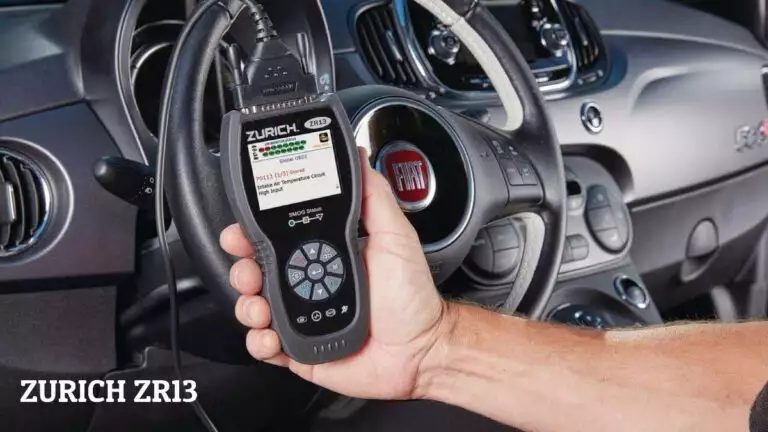How to Tell If Your Engine is Knocking
To determine if your engine is knocking, listen for a repetitive thumping sound while driving. Engine knocking indicates potential damage, neglect may cause serious issues if ignored.
When you hear abnormal sounds coming from your engine, it’s important to address them promptly to prevent further damage. Ignoring engine knocking could lead to costly repairs or even engine failure. Regular maintenance and timely action can help keep your engine running smoothly.
If you suspect your engine is knocking, it’s best to consult a professional mechanic for a thorough inspection and necessary repairs. By staying vigilant and addressing issues promptly, you can ensure the longevity and performance of your vehicle’s engine.
Common Signs Of Engine Knocking
A knocking engine can be a sign of serious trouble, and being able to recognize the common signs of engine knocking can save you from costly repairs down the line. In this post, we will explore the key indicators that your engine may be knocking, including the distinctive knocking noise, loss of power, and poor fuel efficiency.
Knocking Noise
Your engine may produce a distinct knocking or pinging sound when it’s under load or acceleration. This noise is caused by irregular combustion, often due to improper fuel ignition timing or the use of low-quality fuel. If you hear a persistent knocking sound coming from your engine, it’s essential to have it inspected by a professional mechanic to prevent further damage.
Loss Of Power
An unmistakable sign of engine knocking is a noticeable loss of power during acceleration. When the combustion process is compromised, the engine may struggle to deliver the expected performance, resulting in sluggish acceleration and reduced overall power output. If you notice a significant decline in your vehicle’s power, it’s crucial to investigate the issue promptly to avoid potential engine damage.
Poor Fuel Efficiency
Engine knocking can also manifest as poor fuel efficiency. When the combustion process is disrupted, the engine may operate less efficiently, leading to increased fuel consumption. If you find yourself making more frequent trips to the gas station or experiencing a sudden drop in fuel economy, it could be a sign of engine knocking that necessitates immediate attention.
Causes Of Engine Knocking
To determine if the engine knocking you hear is a cause for concern, it’s essential to understand the potential reasons behind this issue. Common causes of engine knocking include:
Low-quality Fuel
Using low-quality fuel can lead to engine knocking due to inconsistent combustion, resulting in abnormal pressure in the cylinders.
Incorrect Ignition Timing
Incorrect ignition timing can cause the air-fuel mixture to ignite prematurely or too late, leading to knocking sounds and potential damage to the engine.
Carbon Deposits
Carbon deposits on the combustion chamber can create hot spots, causing premature ignition and engine knocking.
Diagnostic Methods For Engine Knocking
When it comes to determining if your engine is knocking, there are various diagnostic methods that you can use. These methods can help you identify the underlying issues with your engine and take appropriate action to rectify them.
Visual Inspection
- Inspect engine components for signs of damage or wear
- Check for any loose or disconnected parts
- Look for oil leaks or unusual stains
Listening For Engine Sounds
- Pay attention to any unusual knocking or tapping noises
- Listen for changes in engine sounds during acceleration or deceleration
- Consult with a mechanic if you notice persistent knocking sounds
Using Diagnostic Tools
- Utilize an engine diagnostic scanner to identify error codes
- Check the engine’s spark plugs and ignition system
- Perform a compression test to assess engine health

Credit: m.youtube.com
Preventing Engine Knocking
Engine knocking can cause serious damage to your vehicle if not addressed promptly. Fortunately, there are several preventive measures you can take to avoid this issue. By understanding the causes and implementing the following strategies, you can protect your engine from knocking and ensure its longevity.
Using High-quality Fuel
High-quality fuel plays a crucial role in preventing engine knocking. Always opt for fuel with an octane rating that meets your vehicle manufacturer’s specifications. Low-quality or contaminated fuel can lead to pre-ignition and detonation, resulting in knocking. Additionally, consider using fuel additives that clean the fuel system and improve combustion, reducing the risk of knocking.
Maintaining Proper Ignition Timing
Proper ignition timing is vital for the smooth operation of your engine. If the ignition timing is off, the air-fuel mixture may not combust at the right moment, leading to knocking. Regularly check and adjust the ignition timing according to the manufacturer’s recommendations to prevent this issue. Moreover, ensure the spark plugs are in good condition and replace them as needed to maintain optimal ignition timing.
Regular Engine Maintenance
Regular maintenance is key to preventing engine knocking. This includes changing the oil and air filters, inspecting and cleaning the fuel injectors, and monitoring the overall condition of the engine. Keep an eye on any unusual noises or vibrations, as they could be early indicators of potential knocking or other issues. By addressing maintenance tasks proactively, you can reduce the likelihood of engine knocking and ensure your engine operates smoothly.
When To Seek Professional Help
If you’ve identified a persistent engine knocking sound in your vehicle, it’s crucial to address the issue promptly. While some engine noises can be harmless, engine knocking is often a sign of a more serious problem that requires the attention of a professional mechanic. Ignoring or attempting to fix the issue yourself can result in further damage to your engine and lead to costly repairs down the line. In this section, we’ll explore three situations that clearly indicate the need to seek professional help for engine knocking: persistent engine knocking, unusual engine behavior, and worsening of symptoms.
Persistent Engine Knocking
When you hear a persistent knocking sound coming from your engine that doesn’t go away after a few minutes of driving, it’s essential to reach out to a qualified mechanic. Engine knocking can be caused by various issues, such as a malfunctioning crankshaft, worn-out bearings, or a damaged piston. Attempting to diagnose and fix these problems without the expertise and proper tools can potentially make the situation worse. By placing your trust in a knowledgeable professional, you can ensure an accurate diagnosis and effective repair of your engine knocking issue.
Unusual Engine Behavior
Engine knocking is often accompanied by unusual engine behavior. If you notice other unusual symptoms, such as a decrease in power, rough idling, or poor fuel efficiency, it’s essential to have your engine inspected by a professional mechanic. These additional symptoms may indicate underlying issues contributing to the engine knocking and can help the mechanic pinpoint the root cause of the problem. By seeking professional help, you can address both the engine knocking and any related problems, ensuring your vehicle runs smoothly and efficiently.
Worsening Of Symptoms
If you notice that the engine knocking sound is getting louder or more frequent over time, it’s a definite sign that something is amiss. Ignoring worsening symptoms could result in severe engine damage and potentially render your vehicle inoperable. By seeking professional help at the earliest signs of worsening symptoms, you can prevent further harm to your engine and potentially avoid costly repairs or even engine replacement. Don’t wait until the situation becomes critical – take action when the symptoms worsen to protect the longevity and performance of your vehicle.

Credit: gandgautorepair.com

Credit: www.captoyota.com
Frequently Asked Questions Of How To Tell If Your Engine Is Knocking
How Do You Know If Engine Is Knocking?
Engine knocking can be identified by a loud knocking or banging noise from the engine. This sound occurs when the air-fuel mixture in the cylinders ignites prematurely. Pay attention to this noise, especially when accelerating or under load. If you hear it, it’s time to get your engine checked.
Can Engine Knocking Be Fixed?
Yes, engine knocking can be fixed by using higher octane fuel, adjusting ignition timing, or repairing faulty components. Regular maintenance can prevent engine knocking.
Can You Hear Engine Knock At Idle?
Yes, you can hear engine knock at idle. It indicates potential issues that need immediate attention to prevent further damage.
Can A Knocking Engine Be Saved?
Yes, a knocking engine can be saved with timely repairs and maintenance by a professional mechanic.
How Can You Tell If Your Engine Is Knocking?
If you hear a knocking sound from the engine, it could indicate a problem like worn-out bearings or excessive clearance in the engine’s moving parts.
What Are The Common Signs Of Engine Knocking?
Common signs include a loud banging noise from the engine, loss of power, poor fuel economy, and increased exhaust emissions.
Why Does Engine Knocking Occur?
Engine knocking occurs when the air-fuel mixture in the cylinders combusts unevenly, causing pressure spikes that create the knocking sound.
Conclusion
It’s crucial to pay attention to any unusual sounds coming from your engine. Identifying and addressing knocking early can prevent costly damage. Regular maintenance and using high-quality fuel can help prevent engine knocking. Stay alert to signs of trouble, and consult a professional if you notice any concerning noises.
Keep your engine running smoothly for a reliable and long-lasting driving experience.


